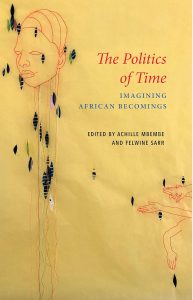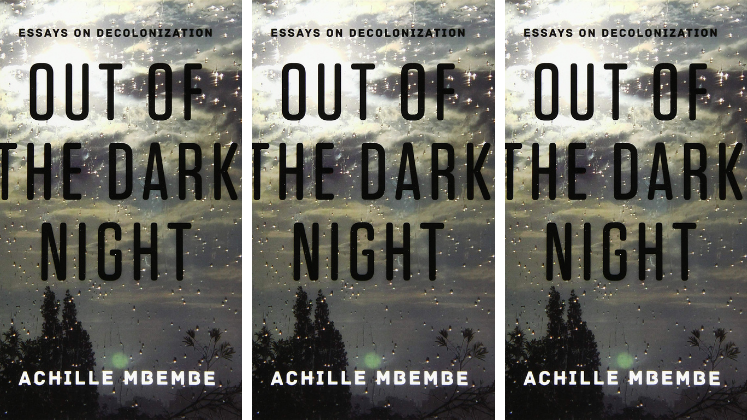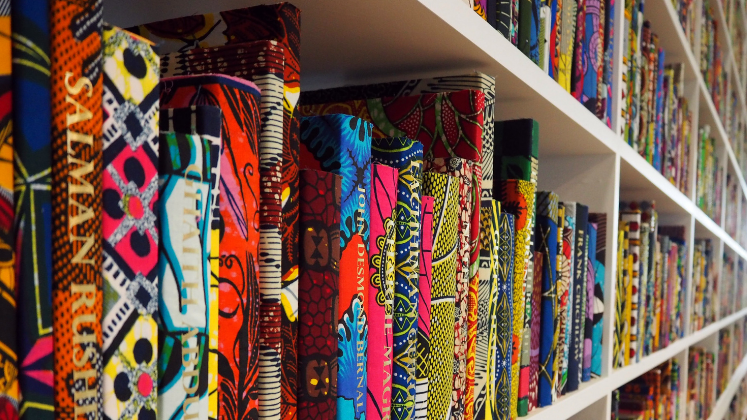The Politics of Time: Imagining African Becomings, edited by Achille Mbembe and Felwine Sarr, stems from the second “Workshops of Thought” held in Dakar in 2017, which brought together African and diasporic intellectuals and artists to discuss topics from decolonisation to political transformation. Engaging variously and critically with African life and thought, Camila Andrade finds this interdisciplinary volume a vital tool for reimagining the continent’s future.
 What word or image comes to mind when you think about Africa? What academic and non-academic texts reflect (on) the African reality? Are they by African writers living on the continent or diaspora? The Politics of Time: Imagining African Becomings, edited by Achille Mbembe and Felwine Sarr, makes it possible to reflect on themes pertinent to the African experience that create future and imaginary possibilities beyond the stereotypes attributed to Africa.
What word or image comes to mind when you think about Africa? What academic and non-academic texts reflect (on) the African reality? Are they by African writers living on the continent or diaspora? The Politics of Time: Imagining African Becomings, edited by Achille Mbembe and Felwine Sarr, makes it possible to reflect on themes pertinent to the African experience that create future and imaginary possibilities beyond the stereotypes attributed to Africa.
Considering Africa involves grappling with a diverse, dynamic and thriving continent, with significant economic growth and a growing youth population. It also involves analysing its problems – such as the levels of inflation, the impacts of climate change, hunger and malnutrition – that have coincided with young post-independence states. It is noteworthy, not to mention ironic, that terms such as “failed states” and “Frankenstein states” are used considering that these African states entered the international scene at a radical disadvantage after being exploited by their former colonisers. From this historical scenario, it is essential to analyse the continent’s past and repoliticise time. And as Mbembe, Sarr and the authors in this volume demonstrate, this endeavour is crucial in the context of conceptualising Africa’s future.
It is essential to analyse the continent’s past and repoliticise time. And as Mbembe, Sarr and the authors in this volume demonstrate, this endeavour is crucial in the context of conceptualising Africa’s future.
The book’s title presents a reflection on the possibilities of plural times, since “[…] we are witnessing the emergence and crystallisation of a new cycle in the redistribution of power, resources, and value” (ix) in the world, as Mbembe and Sarr argues in the preface. There are different moves at a multiplicity of speeds, continuities and ruptures in time, which lead us to think about future possibilities for Africa. “Imagining African becomings” means recognising its past, understanding its present and conjecturing possibilities for the future. The continent has been gaining space in the international arena, whether by acting in international organisations, through the African Union and its regional economic zones, or by its individual state roles. Therefore, Mbembe and Sarr claim that “Africa is not merely the place where part of the planet’s future is currently playing itself out. Africa is one of the great laboratories from which unprecedented forms of today’s social, economic, political, cultural, and artistic life are emerging” (viii).
The book is divided into six parts, in addition to the preface, bringing together intellectuals from different areas who adopt different lenses on Africa’s history and future possibilities, both academic and non-academic, covering law, literature, anthropology and others. The sections comprise 20 chapters with fundamental and urgent themes, such as the movement of people, migration, religion, the African diaspora, African futures and decolonial African education.
The book is the result of “The Workshops of Thought” (Les Ateliers de la Pensée) held in Dakar in 2017, an initiative created by the editors to unite intellectuals to think about plural perspectives of Africa’s realities and its possible futures
The book is the result of the second “Workshops of Thought” (Les Ateliers de la Pensée) held in Dakar in 2017, an initiative created by the editors to unite intellectuals to think about plural perspectives of Africa’s realities and its possible futures. The first session, held in October 2016, produced the volume To Write the Africa World, of which The Politics of Time is a companion. The Ateliers initiative demonstrates the vitality of intellectuals in African Studies, especially those working in Africa and its diaspora, who aim to deconstruct myths about Africa and go beyond that with “[…] the freedom to imagine alternatives” (135), as Françoise Vergès offers in the chapter “Un/learning”.
The chapters are developed based on the guiding question of how to envision a politics of time in contemporary conditions (ix). Other relevant questions are posed for reflection throughout the chapters, such as: “How might one transform the present and the past into a future? How might one produce a bifurcation in the real? Imagine other African possibilities? […] These, we suspect, have been the questions at the heart of the modern study of Africa and its diasporas” (x-xi).
Reflecting on possible futures also involves the decolonisation of knowledge; that is, thinking about practices, methodologies and objectives that prioritise the needs of the African continent. Universities and other educational apparatuses are not neutral: they were and continue to be instruments of (neo)colonising ideals. It is important to have an education that frees the body and mind and that goes beyond the reproduction of Eurocentric models that elide realities not found in Western universality. As Souleymane Bachir Diagne argues in the chapter, “From Thinking Identity to Thinking African Becomings”, “Today, the principal form of Eurocentrism is not one culture’s assertion that its values can dictate the norms that all others must follow. It is, rather, the form that grants the West the exorbitant privilege of being the only culture capable of reflecting critically of itself” (8).
Imagining possible futures for Africa also involves having different narratives and a plurality of stories. It requires us to rethink political models and the nation-state model itself, imported by colonisation. As Felwine Sarr argues in the chapter, “Reopening Futures”,
“It is about leaving behind the Eurocentrism tied to linear, progressive schemas of History, and of dropping Europe’s master-narrative, whose model the world’s other peoples are condemned to adopt or unhappily repeat. It is about accepting the plurality of collective ways of being, the multitudinous forms of societal life, the diverse modalities for producing being that we call cultures – and it is about accepting the possibility of there being many worlds within the world” (119).
In Amefrica Ladina we are also undergoing a decolonisation of knowledge, and it is vital to exchange ideas and methods with our peers in the Global South on how we can envision prosperous futures.
In the chapter “Weaving, a Craft for Thoughts”, Jean-Luc Raharimanana reminds us that “Successive centuries of domination block the free narration of our relations with the world, but, in the end, those times were unable to efface us from the society of the Living [des Vivants]. Africa is here; Africa is in us” (49). As part of the African diaspora, geopolitically located in the Global South (Brazil), the connection between Africa and its diaspora caught my attention throughout the article, understanding the role of the latter in terms of society, development, history and ancestral connectivity. In Amefrica Ladina we are also undergoing a decolonisation of knowledge, and it is vital to exchange ideas and methods with our peers in the Global South on how we can envision prosperous futures.
In thinking through the means of creating these futures, the book becomes a fundamental tool for intellectual emancipation about and for Africa. It provides a rich overview of the ideas and challenges for thinking about multiple Africas contemporaneously. Just as the African Union’s Agenda 2060 presents its vision as “an Africa for Africans and by Africans”, The Politics of Time inspires us to go beyond a static future premeditated by outsiders, instead imagining utopian futures that can become realities.
This post gives the views of the author, and not the position of the LSE Review of Books blog, or of the London School of Economics and Political Science.
Main image: Red Block, 2010 by Ghana born artist El Anatsui, on show at The Broad, Los Angeles; October 2022. Credit: █ Slices of Light ✴ █▀ ▀ ▀ on Flickr.








Camila, a resenha deixa em nós leitores um desejo imenso de saciar conhecimentos sobre o continente africano e a diáspora, parabéns! 👏🏿👏🏿👏🏿